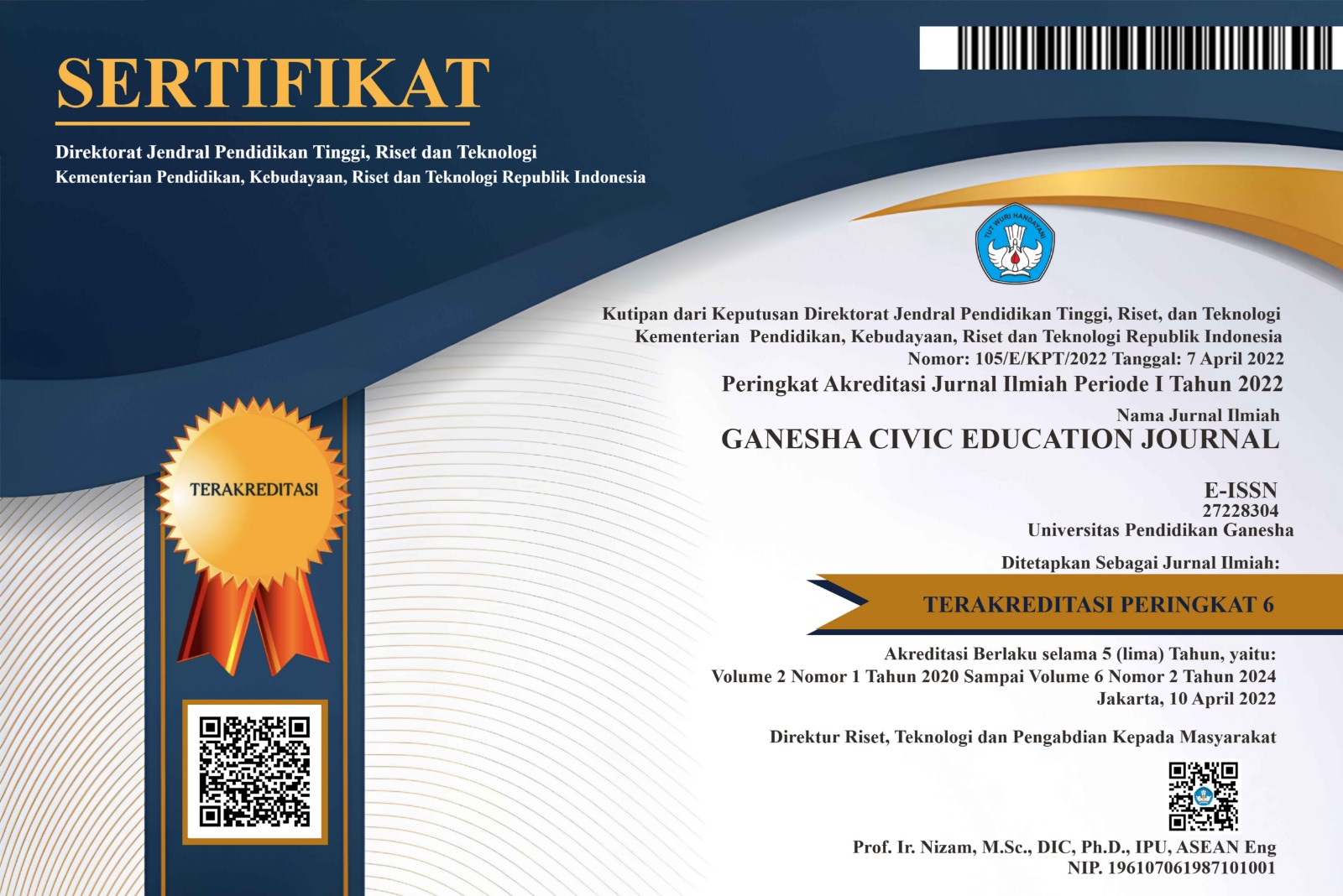PELAKSANAAN PEMENUHAN HAK PENDIDIKAN DASAR DAN MENENGAH BERDASARKAN KETENTUAN THE INTERNATIONAL COVENANT ON ECONOMIC, SOCIAL AND CULTURAL RIGHTS DI KAWASAN PERBATASANNEGARA DI PROVINSI KALIMANTAN BARATKALIMANTAN BARAT
DOI:
https://doi.org/10.23887/gancej.v4i2.1814Keywords:
indicators, jurisdiction, state compliance, and human rightsAbstract
This doctoral reseach on “The Implementation of the fulfilment of Elementary School According to the International Covenant on Economic, Social and Cultural Rights (ICESCR) in the State Border Areas Between Indonesia and Malaysia in West Kalimantan Province” aims to find out relevance of state compliance toward international obligations contained therein in terms of law, policy, program, action and funds to overcome or to minimize emergence of “areas of unwilling to school” since Indonesia ratified the ICESCR in 2005. Furthermore, it also aims to reveal determinant factors for its effective fulfilment carried out by central as well as local governments. This research is a empirical normative legal research conducted through an extensive and in-depth analysis of relevance legal data, i.e. primary and secondary data. Primary data were obtained through interviews and delivering in-depth list of questions directed to those who have authority in terms of planning, making and executing law, policy, programs, actions and funds for fulfilment of elementary school in the area. Secondary data were obtained through literature reviews on education as fundamental rights, state obligations under international human rights laws and other relevant international law. Analysis was conducted by identification and systematization of the data justifying their relevance roles, functions and contribution. While at the end, they were completed through in depth analysis of legal logic to sustain their correlation and attribution to the said indicators of availibility, accessibility, adaptability and acceptability enshrined in the ICESCR based on localities’ contexts and perspectives. This research reveals two conclusions. First, since 2005, the fulfilment of the primary education has been progressively fulfilled by introducing new laws, approaches and new concepts of increasing accessibility to basic or primary education’s infrastructures and incentives. However, these initiatives is still far more to go in accordance to the ICESCR objectively verified indicators of availibility, accessibility, adaptability and acceptability. Second, technical and geographical factors has played as determinant roles of reducing fulfilment of right to primary education on border areas of Sambas, Sintang, Sanggau, Kapuas Hulu, and Bengkayang. They formed areas of unwillingness to go to school even though government has introduced new legislations, policies, programs, actions and appropriate funds vertically and horizontally as realization of sovereignty as responsibility taken by central and local governments.






1.png)









